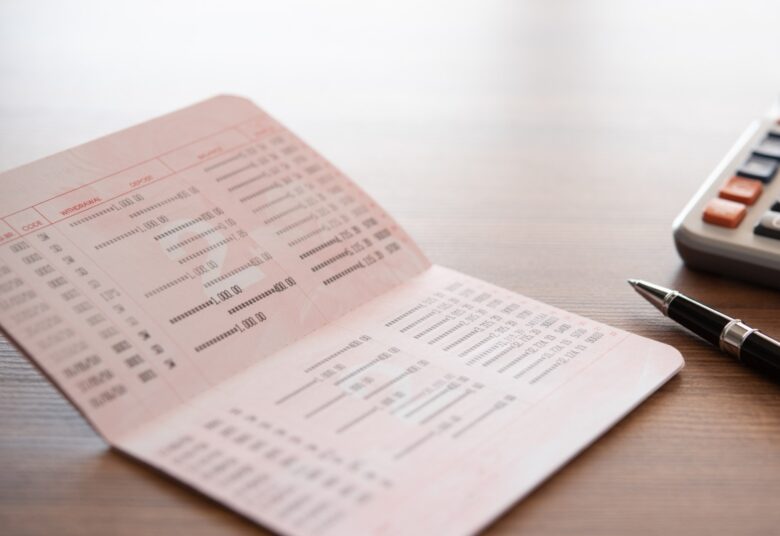A bank account helps you keep your money safe and immune to inflation. Opening a savings account online now is much easier. You only need to follow a few simple steps to open a digital bank account. While a single savings account can help secure your money and meet daily expenses, you may need more than one bank account to achieve your financial goals and build corpora. Let us discuss how many bank accounts you need based on your financial requirements in the article below.
Contents
Do you require multiple bank accounts?
Before arriving at the answer to the number of accounts you need, you must first know whether you need multiple bank accounts or not. Banks and financial institutions offer numerous accounts based on individuals’ financial planning and their objectives. If you have more than one time-bound financial goals to achieve, you may require multiple bank accounts to serve the purpose.
Among several accounts, banks broadly offer savings, deposit, and investment accounts with distinctive features and benefits. You can choose various accounts depending on your financial planning and objectives. If you are looking for a bank account with comprehensive benefits, you can consider an IDFC FIRST Bank savings account which offers unique benefits such as the highest interest rates in the industry to ensure better ROI (Return on Investment), and monthly interest credits for quick capital appreciation.
Moreover, you can use a savings account to fund your deposits and mutual fund investments through the mobile app or net banking facility.

Source: canva.com
Why do people open multiple accounts?
People open multiple accounts for several reasons, such as a new bank account after a job change or different accounts for investments, savings, and deposits. The reasons vary depending on the individual and the financial product they opt for.
Advantages of multiple bank accounts
Managing multiple accounts may require some effort but owning more than one account has its rewards and benefits, such as those mentioned below.
-
Less dependency on one bank
With multiple bank accounts, you can ensure less dependency on one bank and enjoy extensive benefits from various banks. Since banks rely on technology for transfers and transactions, downtime at one bank will not leave you stranded in situations of emergency.
-
Enhanced savings
Owning more than one bank account lets you earn different interest rates from various savings and deposit accounts. The rates in different accounts and banks may fluctuate, but your overall earnings will not destabilise.
-
Maximising offers
Most banks come with period offers on their accounts and debit cards. With multiple savings accounts, you can encash offers and discounts from different bank accounts and extend your profit horizon.
-
Safety
Sometimes a bank may fail to perform, discouraging you from withdrawing your money. However, with multiple accounts, you can ensure that you have enough liquid funds ready at your disposal. Moreover, scheduled banks also insure up to Rs. 5 lakhs in a bank account.

Source: canva.com
Downsides of owning multiple bank accounts
While holding multiple bank accounts have some proven benefits, there are a few disadvantages as mentioned below.
-
Maintaining the average monthly balance of an account
Generally, savings accounts come with a MAB (Monthly Average Balance) criterion that you must maintain to avoid penalties. Owning multiple accounts simultaneously can make it hard for you to manage and maintain the minimum required balance. If you are concerned about maintaining the MAB of multiple accounts due to prevailing expenses, it is advisable to only own as many accounts as you can manage effectively.
-
Improper use of funds
It is quite possible that you find it more lucrative to invest your funds rather than use them to maintain the MAB of multiple bank accounts. After completing your research, you might prefer to invest in high-yield deposit accounts which offers competitive interest rates for better returns. You must plan your finances in such a way that your idle money earns better interest, and a fixed deposit is a viable option to do just that.
-
Chances of account dormancy
As per the Reserve Bank of India guidelines, your account becomes dormant if the account does not oversee any activity for 2 years. Dormant or inactive accounts attract penalties, and all the linked services are withheld, eventually leading to losses. Holding multiple accounts may make it hectic for you to track each one of them regularly, which may result in a few of them becoming dormant.
-
Hassles of managing all the accounts
All financial products and services require responsible management to avoid losses, irrespective of whether they are meant for savings or investments. When an individual opts for more than one account, they need to regularly monitor their account activity, minimum balances, transactions, and pay for the availed services.
Multiple accounts may reduce your dependency on one bank but also increase the hassle of having to manage all the accounts at the same time. If you need more than one account due to financial reasons and objectives, only then must you proceed and apply for them.

Source: canva.com
When do you really need multiple savings accounts?
It is a matter of personal financial choices to open more than one account. However, in case you need multiple bank accounts, experts suggest that you should open three accounts at most. If you are salaried, you need a salary account which is a type of savings account but has the sole purpose of crediting your monthly salary. Usually, employers tie up with specific banks for salary accounts, so you don’t have much flexibility in this case.
Those who do not necessarily need multiple bank accounts can opt for high-yield savings accounts with banks that offer the highest interest rates along with low service charges. As an account holder, you can enjoy a monthly interest credit of up to 6.75% per annum and over 28 common banking services completely free of charge. The services include free ATM withdrawals across India, no charges on DD issuance, no fee charged on cheque reissuance, no penalties on cheque bounces, and much more. Overall, you get enhanced savings opportunities along with discrete banking services.
Finally, you can open a joint savings account with your spouse or family member for a convenient fund transfer and monetary use. You can choose a nominee of your choice to ensure your family’s financial safety. There is no fixed answer to how many accounts you must hold. Since everyone can have varying objectives and ways to handle their finances, the number of accounts could differ depending on these factors. Outlining your financial requirements and goals can help you identify the number and types of accounts you need.
